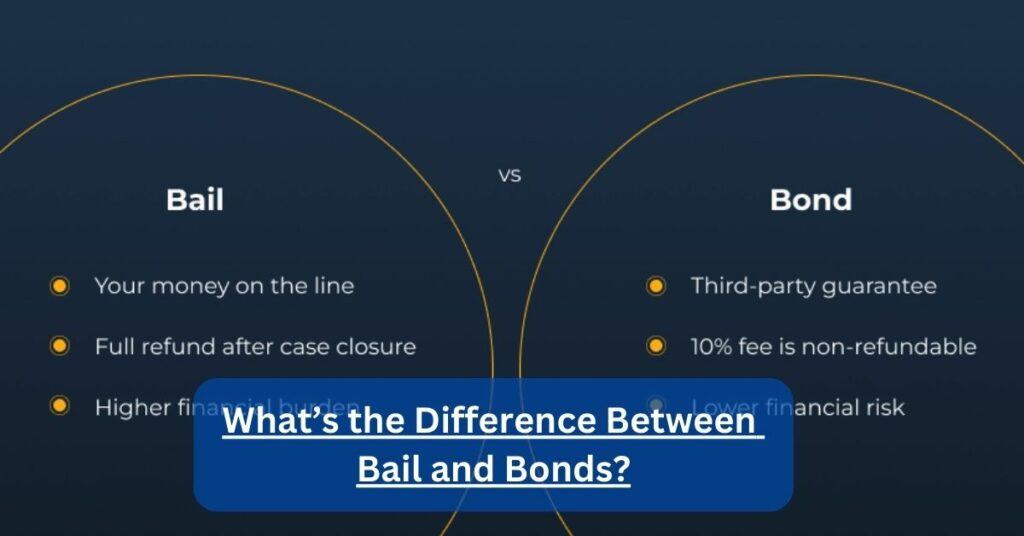What’s the Difference Between Bail and Bonds?

Bail and bonds are terms that are often used interchangeably when it comes to the justice system. Understanding the difference between bail and bail bonds is beneficial for individuals who find themselves or loved ones in the legal system as defendants. Here’s more information about bail and bonds:
What Is Bail?
Bail is the full amount set by the court that the defendant must pay directly to secure their release. The judge sets an individual’s bail based on the severity of the crime and the defendant’s prior criminal history. The accused or their loved ones can pay the bail in its entirety in exchange for getting out of jail. This money guarantees that the individual will appear for all scheduled court proceedings. If the defendant fulfills this obligation, the bail amount is refunded at the end of the case.
What Is a Bond?
Bail bonds are securities that allow defendants to be released from jail while awaiting trial. A bond is needed when the defendant or their relatives can’t afford to pay the entire bail amount. In this case, they can seek financial assistance from a bail bond agent or company. The bondsman charges the defendant a non-refundable fee and then presents a bond for the complete bail sum to the court on behalf of the accused. The bond agent is held responsible for the entire bail sum if the defendant does not present themselves in court.
Are There Different Types of Bail Bonds?
Several types of bonds are available to defendants, including cash bonds, surety bonds, property bonds, and personal recognizance bonds. Cash bonds involve the defendant paying their total bail amount to the court in cash. A surety bond requires the defendant or their family members to pay a fraction of the total bail sum to a bond agent as security. The bail bondsman will then post the remaining amount to the court as security for the defendant’s release. Property bonds involve using the defendant’s property, such as a house or car, as collateral for the entire bail amount.
Personal recognizance bonds are set by the judge based on the defendant’s standing within their community. If the defendant doesn’t pose a risk to their community, the judge may set their bail amount and grant them a personal recognizance bond. The only thing required of the defendant is the promise to attend all required court dates. Immigration bonds are created specifically for non-citizen defendants and verify they will attend all immigration hearings. Federal surety bonds are used in federal cases and require a bondsman to act as the surety for the defendant’s release.
Which Bond Is Right for You?
The type of bail bond that is right for you depends on your financial situation and criminal background. A cash bond is suitable for defendants who can afford to pay the full bail amount on their own. Traditional bail or surety bonds are good options for defendants and their families who cannot afford the total amount and need financial assistance. Property bonds are a viable option for defendants with limited access to cash but who own valuable property. Personal recognizance bonds are ideal for individuals who are confident in their positive reputation within their community. A reputable and experienced bail company can assess your case and help you determine which bond option is best for your situation.
Work With a Bail Bond Company
Bail bonds allow defendants to be released from jail while their case is heard in court. The type of bail bond that is right for you or your loved one depends on the bail amount and your financial capabilities. Bail bond companies provide financial help for defendants in exchange for a non-refundable fee. Contact a reputable bond company today to learn more about securing your release from jail.





